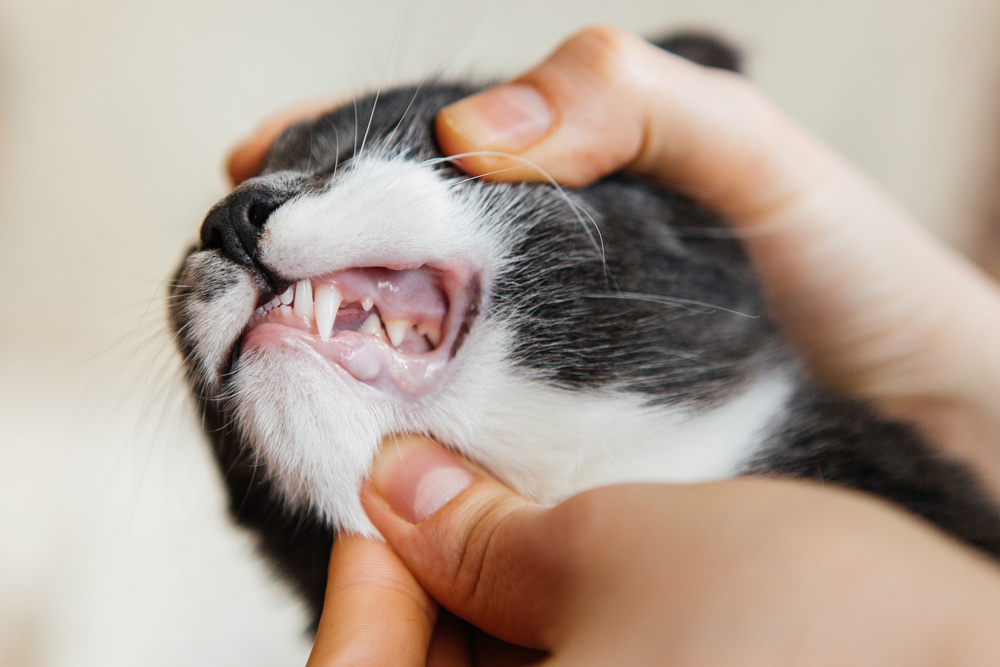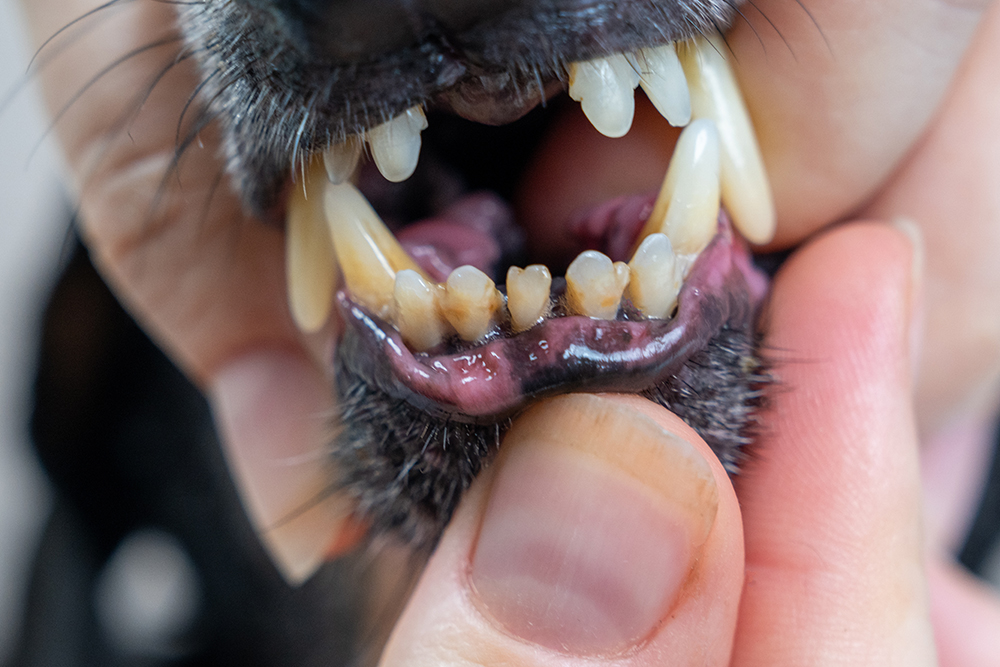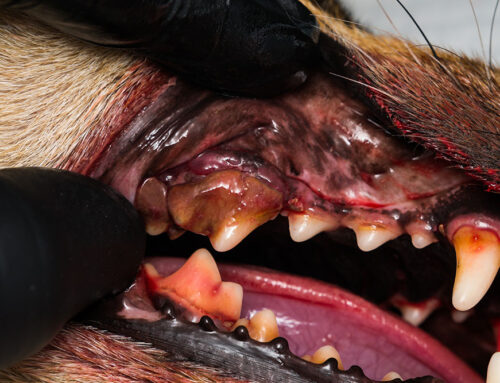Your Questions Answered: What to Expect from a Veterinary Dental Specialist
When your primary veterinarian recommends a referral to a dental specialist, it can raise new questions about what comes next. Can your senior pet handle anesthesia? Can that fractured tooth be saved? What’s the difference between a root canal and an extraction?
At North Bay Veterinary Dentistry in Petaluma, our focus is advanced, compassionate care for dogs, cats, and exotic species. From detailed consultations to complex oral and maxillofacial surgery, we help families make informed decisions about their pets’ oral health.
This guide answers the most common questions we hear from pet owners- and offers a closer look at what makes a veterinary dental specialty practice unique.
Why Was My Pet Referred to a Dental Specialist?
Your primary care veterinarian may refer you to a dental specialist when a condition requires advanced imaging, surgical expertise, or specialized tools. Our team performs full-mouth radiographs and Cone Beam CT (CBCT) imaging to assess teeth, bone, soft tissue, and jaw joints in three dimensions.
CBCT provides a detailed view of hidden problems such as root fractures, oral tumors, or developmental abnormalities that cannot be seen on standard dental X-rays. This advanced technology reduces anesthesia time, minimizes radiation exposure, and allows earlier detection of complex oral conditions.
What Happens During My Pet’s Consultation?
Your pet’s first visit is a comprehensive, 45-minute consultation with Dr. Fulton. We review your pet’s medical and dental history, perform an oral examination, and discuss findings and recommendations in detail. You’ll receive an itemized estimate for proposed treatments and a clear outline of the surgical or anesthetic plan if needed.
We also coordinate directly with your primary veterinarian, sharing digital imaging and detailed reports to ensure seamless communication and continuity of care.
How Is Anesthesia Managed for Dental Procedures? Can Advanced Imaging or Dental Work Be Done Without Anesthesia?
Every procedure at our practice is performed under general anesthesia for safety, comfort, and precision. Our anesthesia protocols are customized for each patient- including seniors and medically fragile pets. Dr. Fulton and our lead RVT, Ashley, have extensive experience managing anesthesia in patients with heart, kidney, or endocrine disease. A board-certified anesthesiologist is also available for high-risk cases, and patients are continuously monitored throughout the procedure.
Anesthesia is essential for all imaging and dental work. Procedures such as dental X-rays and CBCT require your pet to remain perfectly still to capture diagnostic-quality images. Attempting these without anesthesia can cause fear, pain, or injury. Anesthesia also allows our team to evaluate below the gum line, clean tooth roots thoroughly, and treat disease painlessly and efficiently.
Can Fractured or Discolored Teeth Be Saved?
Yes- often through advanced endodontic therapy. When a tooth breaks and exposes the pulp, bacteria can quickly invade, leading to infection and significant pain. A root canal preserves the tooth’s function by removing infected tissue, cleaning and sealing the canal, and restoring the tooth surface with composite materials.
However, complicated dental fractures that extend below the gumline or involve the root may require extraction or surgical root canal therapy. We review both options carefully during consultation to help you choose what best supports your pet’s comfort and long-term oral health.
How Do You Treat Periodontal Disease?
Periodontal therapy at our practice goes far beyond a cleaning. Our periodontics service includes ultrasonic scaling above and below the gumline, root planing, and targeted antibiotic placement within deep periodontal pockets.
In advanced cases, we may perform guided tissue regeneration or periodontal flap surgery using bone graft material to preserve teeth and restore supportive structures. Pain management is multimodal and tailored to each patient- combining local anesthesia, nerve blocks, and systemic medication for optimal comfort and healing.
How Are Oral Tumors and Jaw Fractures Treated?
Our surgical services include oral and maxillofacial procedures for oral tumors, mandibular fractures, and other traumatic injuries. Depending on the case, surgery may involve tumor excision, jaw plating, or soft-tissue reconstruction.
For oral tumors, we prioritize patient comfort and complete removal whenever possible. Masses are biopsied under anesthesia and, when appropriate, referred for radiation therapy. Pain control, follow-up imaging, and post-operative care are carefully managed to promote healing and long-term wellbeing.
What Are Oronasal Fistulas and How Are They Repaired?
An oronasal fistula forms when an opening develops between the mouth and nasal cavity, often following advanced dental disease or extraction of an upper canine tooth. These defects can cause chronic sneezing, nasal discharge, or infection.
Surgical repair involves closing the defect with soft tissue flaps and ensuring the site heals without tension or contamination. Our oral surgery team has extensive experience with fistula repair and provides detailed home-care instructions and follow-up to ensure full recovery.
Do You Offer Orthodontic Correction for Bite Abnormalities?
Yes. Our orthodontic services focus on functional comfort- not cosmetic alignment. Malocclusions can lead to chronic pain, infection, or trauma to soft tissues. Depending on your pet’s needs, we may recommend interceptive orthodontics (select tooth removal), crown amputation with vital pulp therapy, or custom-made appliances such as inclined planes or spacers to achieve a healthy, pain-free bite.
How Do You Manage Recovery and Postoperative Pain?
Comfort is a cornerstone of every treatment plan. All oral surgeries include localized nerve blocks, anti-inflammatory medication, and take-home pain management tailored to your pet’s size and medical status. Our surgery day guide outlines what to expect before, during, and after your pet’s procedure.
Before discharge, we review imaging and findings with you, send home detailed instructions, and schedule follow-up visits to monitor healing and address any questions during recovery.
How Long Do Restorations or Crowns Last?

Restorative procedures such as prosthodontic crowns are designed for long-term durability. With proper care, most last for many years. After placement, we recommend avoiding dangerous chew items that could fracture teeth or damage restorations. Routine rechecks, good home care, and appropriate toys help extend the life of any dental work.
How Do You Handle Complex or Unusual Cases?
As a referral practice, we often treat patients with unique or challenging conditions- from developmental abnormalities and advanced stomatitis to systemic diseases that complicate oral health. We also provide zoo and wildlife dentistry, supporting rehabilitation and conservation efforts.
Each case receives a fully individualized plan designed around comfort, safety, and outcome success, with collaboration across veterinary specialists as needed.
What’s the Timeline Between Consultation and Treatment?
We are currently scheduling new consultations approximately 4–6 weeks in advance, with treatment appointments available 1–3 weeks after your consultation. Updated scheduling and cost information is available on our current timelines and costs page.
We encourage pet owners to contact us as soon as they notice oral pain, broken teeth, or changes in eating or behavior. Timely evaluation can prevent disease progression and reduce the need for extensive surgical intervention.
Supporting Pets and Families Through Advanced Dental Care
At North Bay Veterinary Dentistry, every patient receives personalized attention- from consultation through follow-up care. Our mission is not only to treat oral disease but to restore comfort, function, and quality of life for the animals entrusted to us.
If your pet has been referred for a dental consultation or you’re concerned about signs of oral pain, call us at (707) 400-0038 or contact our team online. Our specialists are here to answer your questions, guide your next steps, and deliver the highest standard of veterinary dental care in Northern California.






Leave A Comment